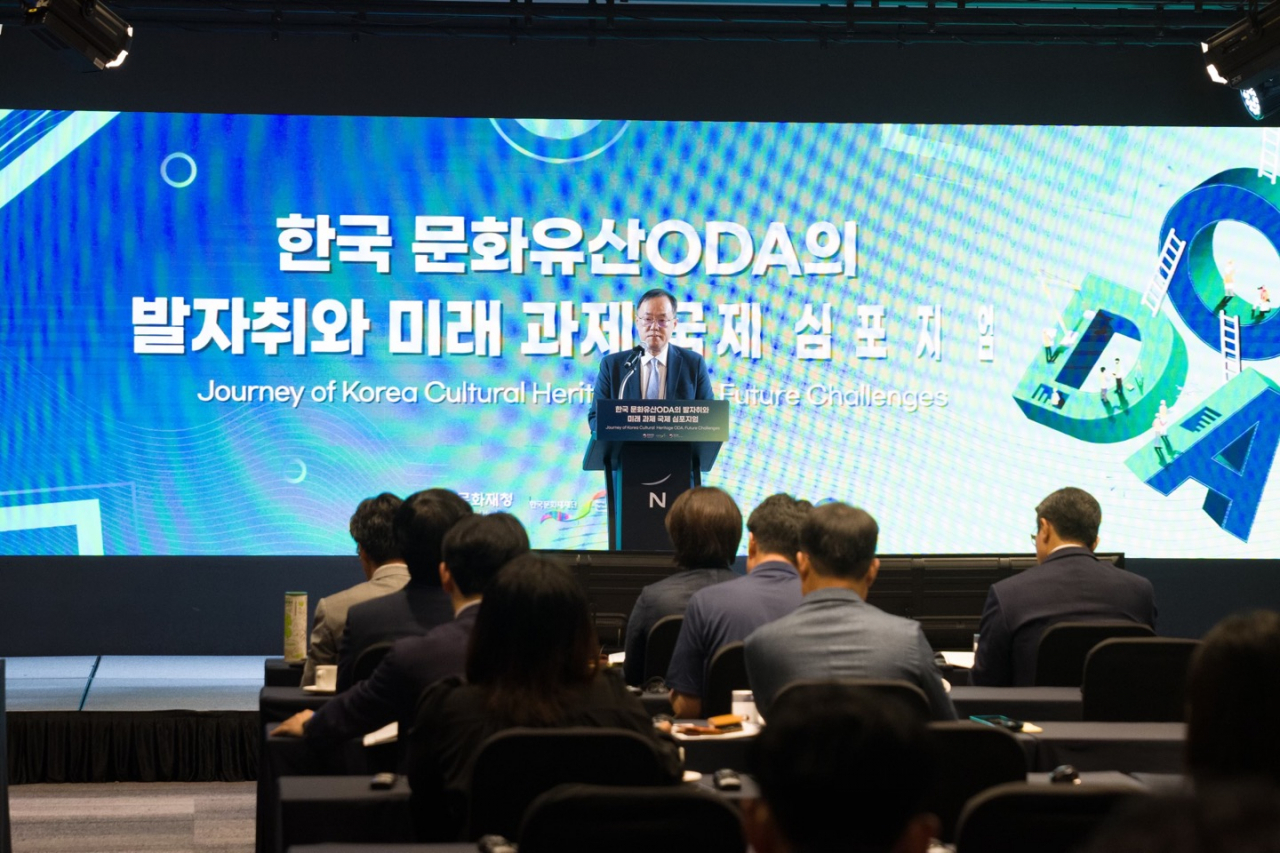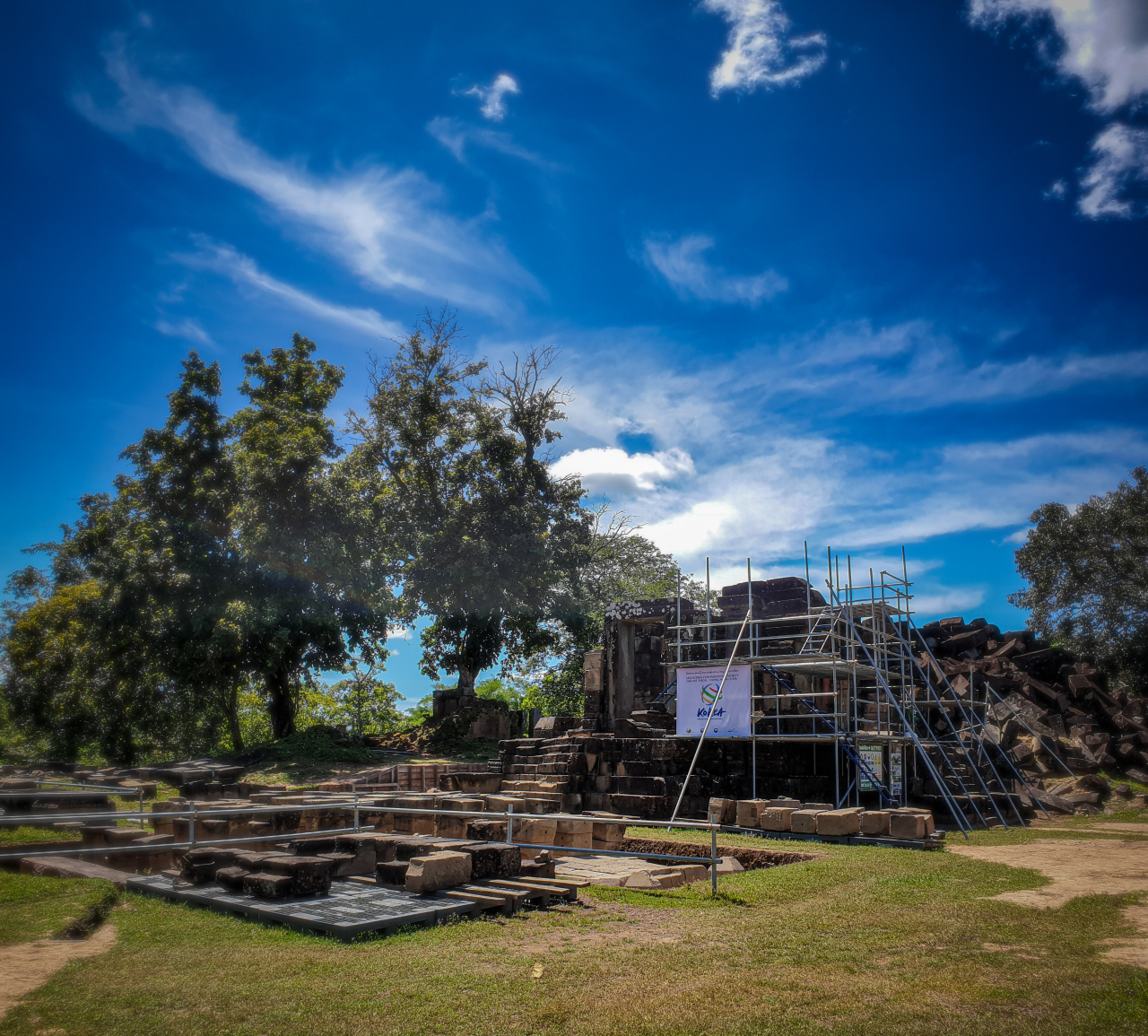Symposium looks back on 15 years of cultural heritage aid projects
Event reflects on program from humble beginnings to digital tech integration
By Kim Hae-yeonPublished : Aug. 31, 2023 - 13:51

Cultural heritage scholars, experts and public officials convened on Wednesday in Seoul to engage in discussions concerning the past, present and future of Korea's official development assistance (ODA) programs for cultural heritage.
Organized by the Foreign Ministry and the Cultural Heritage Administration, the symposium aimed to reflect on the heritage ODA project's 15-year journey since its inception in 2009. It also served as a platform to commemorate a decade of accomplishments following the restoration and preservation of Laos' Hong Nang Sida Ruins—a project spearheaded by South Korea.
The daylong event drew some 100 participants, including foreign officials associated with Korea's ODA projects in various countries.
During the opening speech, Jeon Bum-hwan, director general of the international cooperation department at the Korea Cultural Heritage Foundation, underscored the ultimate goal of Korea's cultural heritage ODA: to empower recipient nations to independently safeguard their cultural heritage for future generations.
"Korea knows from experience that many cultural heritage sites can disappear or be severely damaged under the shadow of progress and economic development. We have seen through our own eyes how cultural heritage in front of our own homes, which seemed eternal, can vanish overnight or suffer irreversible damage," Jeon said.
South Korea's ODA projects strive to help developing nations make fewer pitfalls and mistakes, drawing from Korea's experiences where cultural treasures were overlooked, Jeon said.

The journey of the country's cultural heritage ODA, which started with a modest budget of 70 million won ($52,900) in 2009, has grown to reach 13.1 billion won for the year 2024. Presently, South Korea's ODA projects extend to countries including Laos, Cambodia, Pakistan, Uzbekistan, Egypt and Kyrgyzstan.
In Laos and Cambodia, the focus is conserving and restoring the cultural heritage of the once-dominant Khmer civilization. Collaborative efforts with local institutions drive projects involving the disassembly and reconstruction of Khmer architecture.
The expertise honed over two decades during the restoration of the Buddhist temple site of Mireuksaji in Iksan, North Jeolla Province, informs restoration efforts in Laos and Cambodia, affirmed by KCHF officials overseeing the projects.

Having a comprehensive preservation strategy is key to successful restoration of these sites, according to Baek Kyung-hwan, KCHF's deputy director general of the international cooperation department.
"Rather than restoring individual sites on a point-by-point basis, the project aims to preserve and manage cultural heritage with the concept of a holistic plan that accounts for a cluster of sites, as exemplified by the conservation of the 'Ancient Road' leading to the Angkorian ruins." Baek said.
South Korea's involvement in ODA initiatives also extends to establishing centers and institutions in recipient countries. A foundation for the research of Gandhara's cultural heritage has been laid in Pakistan, while Uzbekistan is developing a center for the efficient management of Samarkand's cultural legacy, in addition to capacity-building endeavors.

The integration of South Korea's digital technology in cultural heritage ODA projects stands out as a distinctive feature.
IT and digital tools are utilized at all stages, from documentation to knowledge transfer, creating an indispensable database for preserving and managing heritage in partner nations, explained Han Na-lae, deputy director of the CHA's heritage promotion bureau.
Looking ahead, South Korea envisions expanding cultural heritage ODA programs beyond the context of Association of Southeast Asian Nations countries, encompassing the Americas and East Africa, as well as addressing global challenges like climate change, Han said.



















![[Today’s K-pop] Treasure to publish magazine for debut anniversary](http://res.heraldm.com/phpwas/restmb_idxmake.php?idx=642&simg=/content/image/2024/07/26/20240726050551_0.jpg&u=)